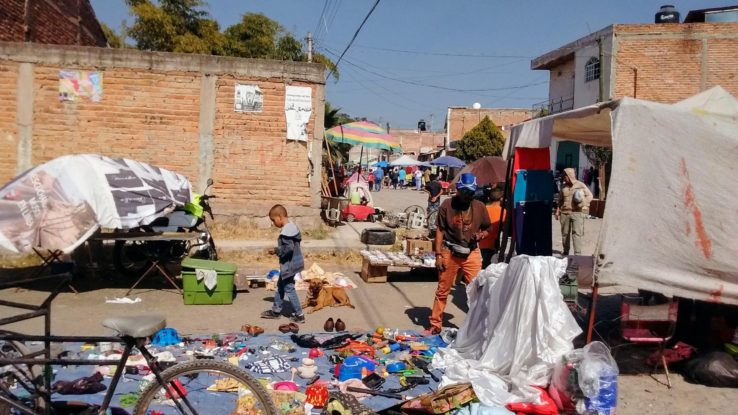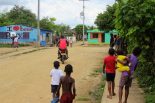That morning a car was taking us through the streets of Tonala, a south-eastern suburb of Guadalajara. World away from the elegant craft markets of Tonala centro, we were passing through some of the poorest neighbourhoods in Guadalajara.
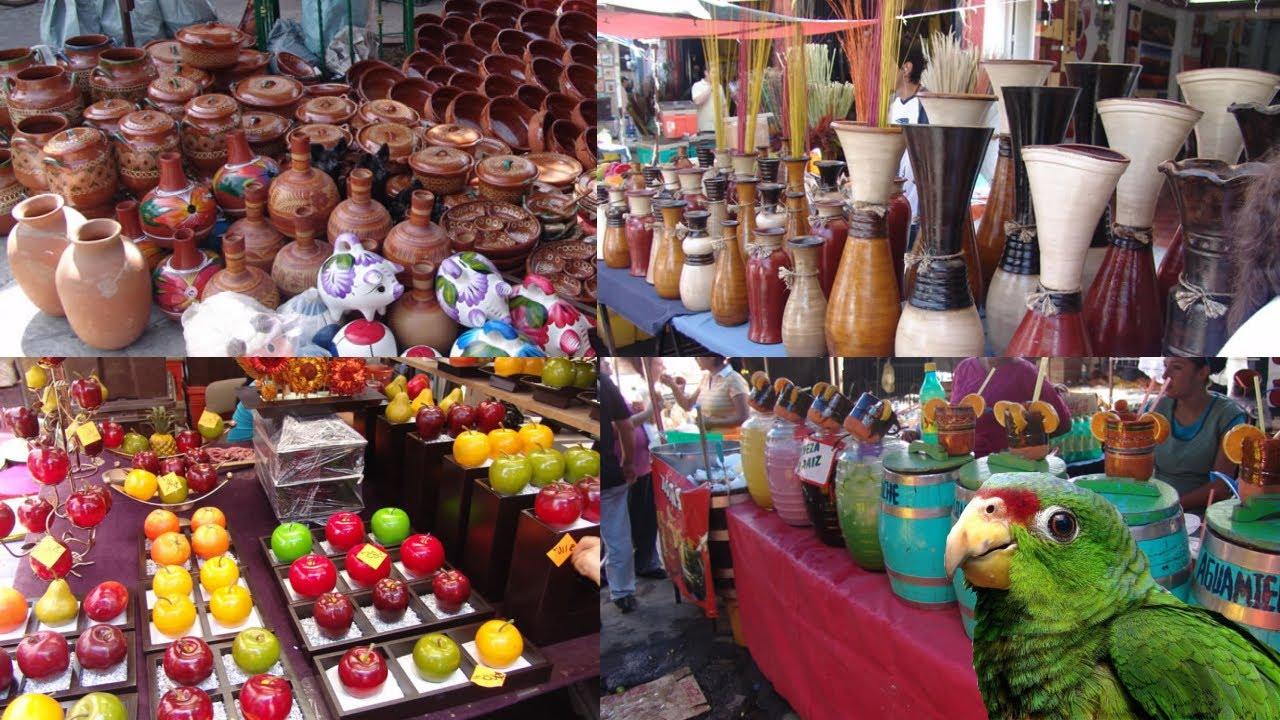
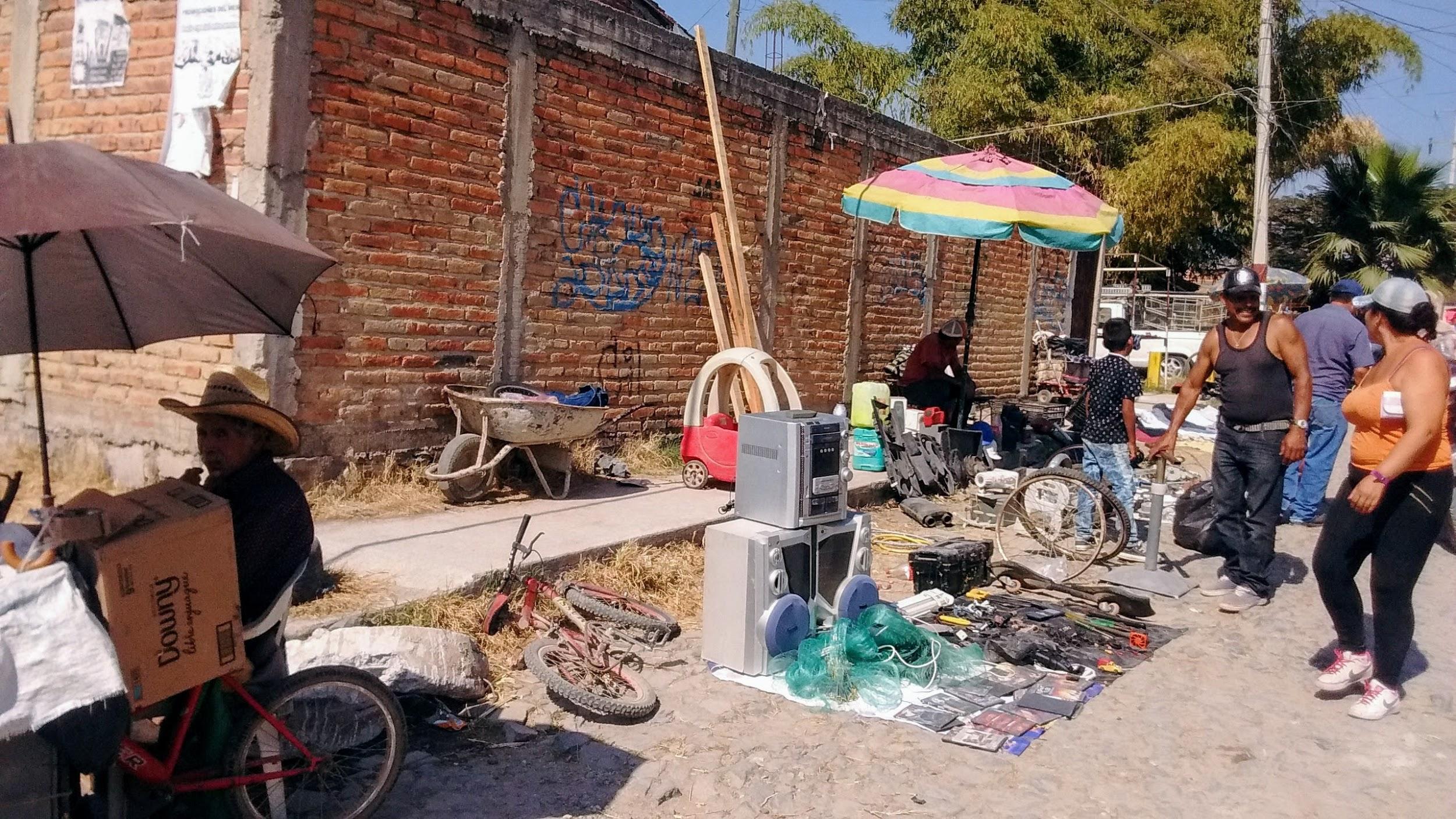
In a car with us was a driver and a coordinator of Children International, an aid organization based in Kansas that is operating five community centers for children across Guadalajara. On our way to visit one such community center in Tonala, the coordinator was telling us about the children in center. From preschool age to school graduates, the children attend the center in the afternoon hours. Coming from low-income families (the average family income is about 100 peso a day, or $100 a month), their evenings would be otherwise spent on the streets, helping out parents or tending to siblings. In the center they get to participate in educational activities, play in a safe environment and even get periodical medical observation.
The center in Tonala is a newly constructed building. Outside children were playing in the playground, which is open to all the children of the neighbourhood.
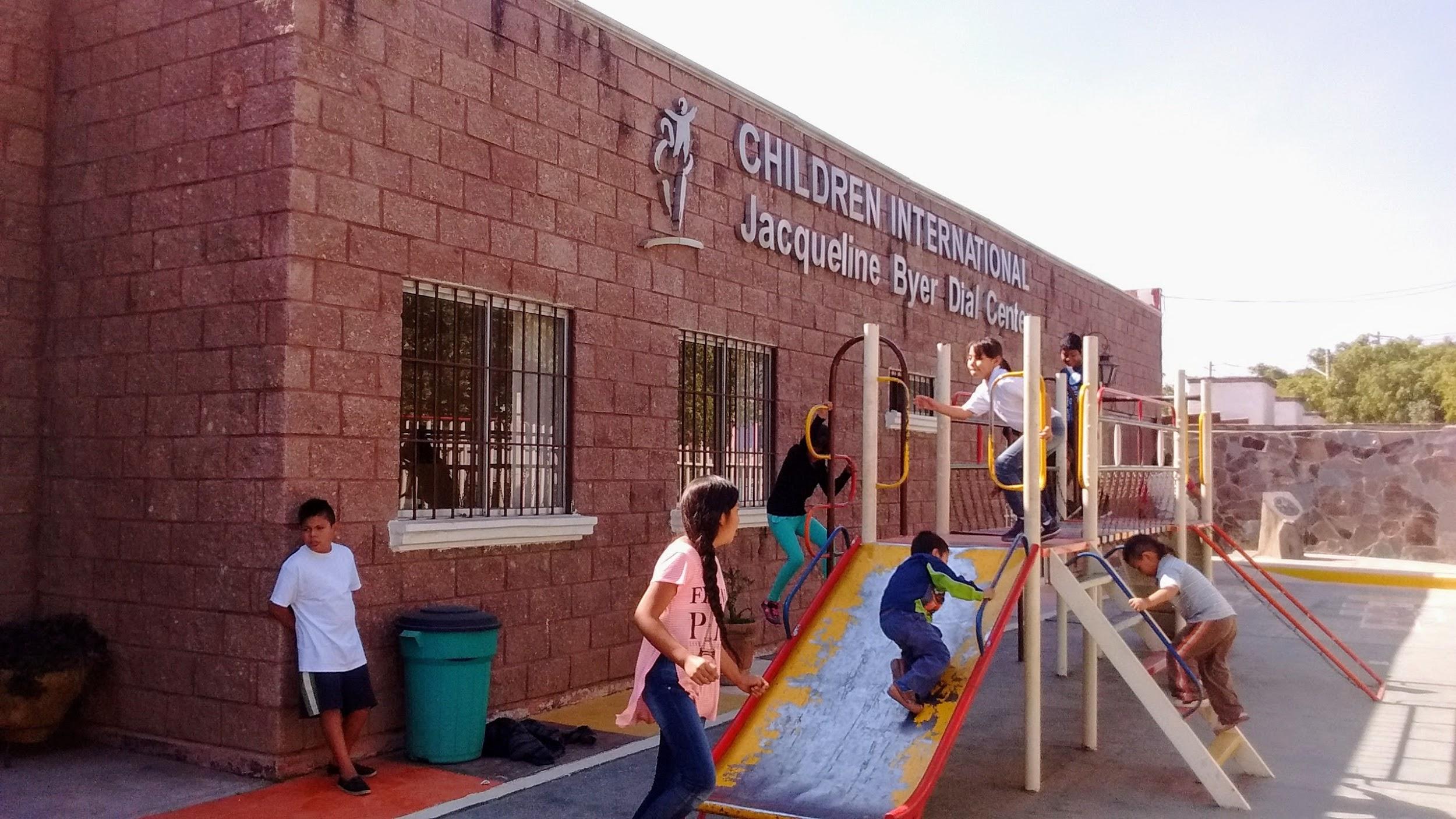
Since we were visiting on a Saturday, the center was mostly empty. In the main hall a few families were waiting to speak to a social worker. All of the employees in the center are locals. Some social workers are full-time employees, others are volunteering university students. Mothers of the participating children also volunteer in the center. They are very helpful in getting the word out and convincing parents to sign their children up.
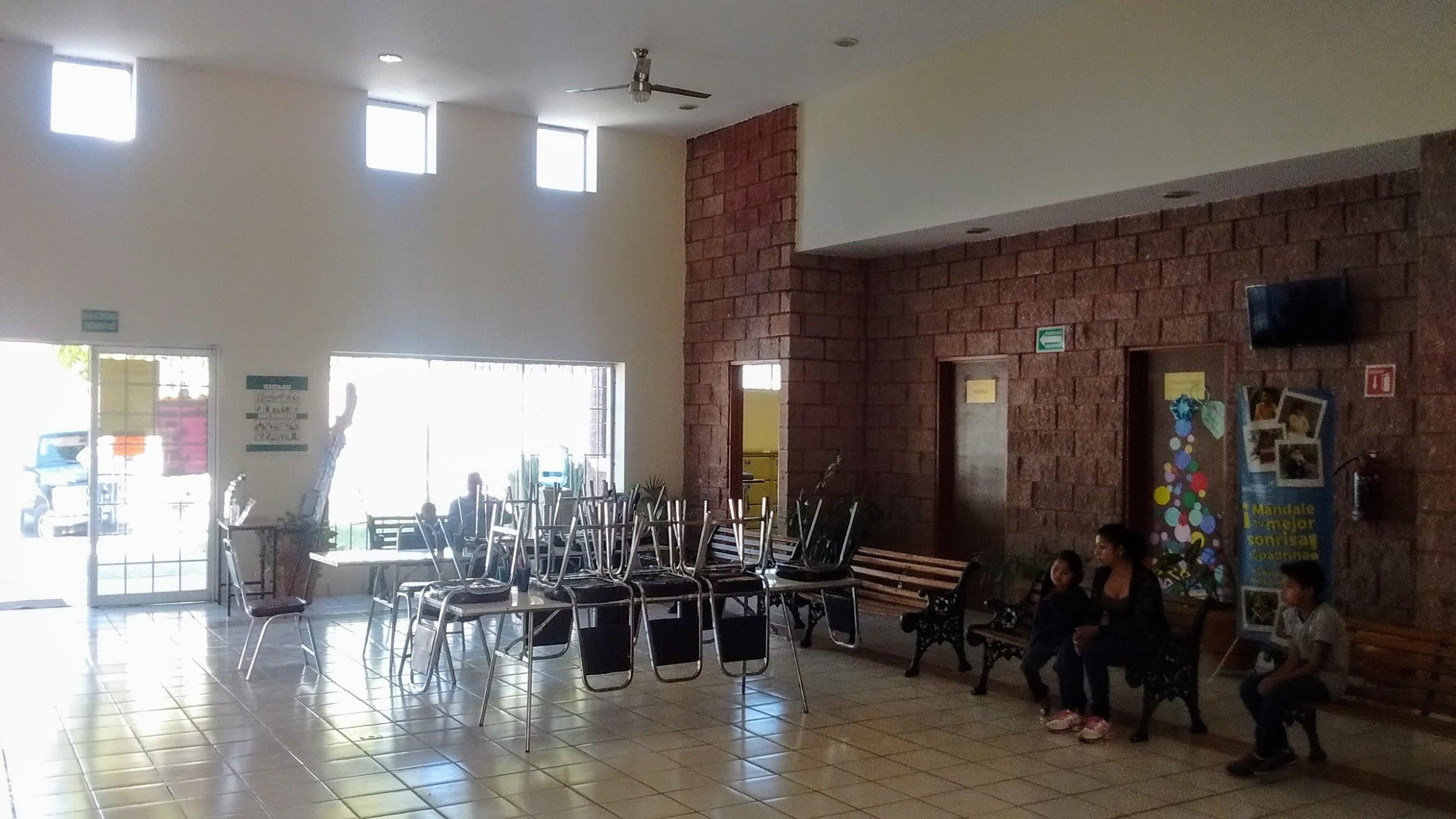
The director of the community center, a nice older Mexican lady took us on a tour of the center. She introduced us to the center’s doctor, who explained that the periodical medical care that the children receive here includes vaccinations (most are provided for free by the state, but parents often don’t have the time or awareness to take advantage of them), taking weight and height measurements and providing parents with nutritional guidance and food supplements if needed. The dental care cabinet is modern and well-equipped.
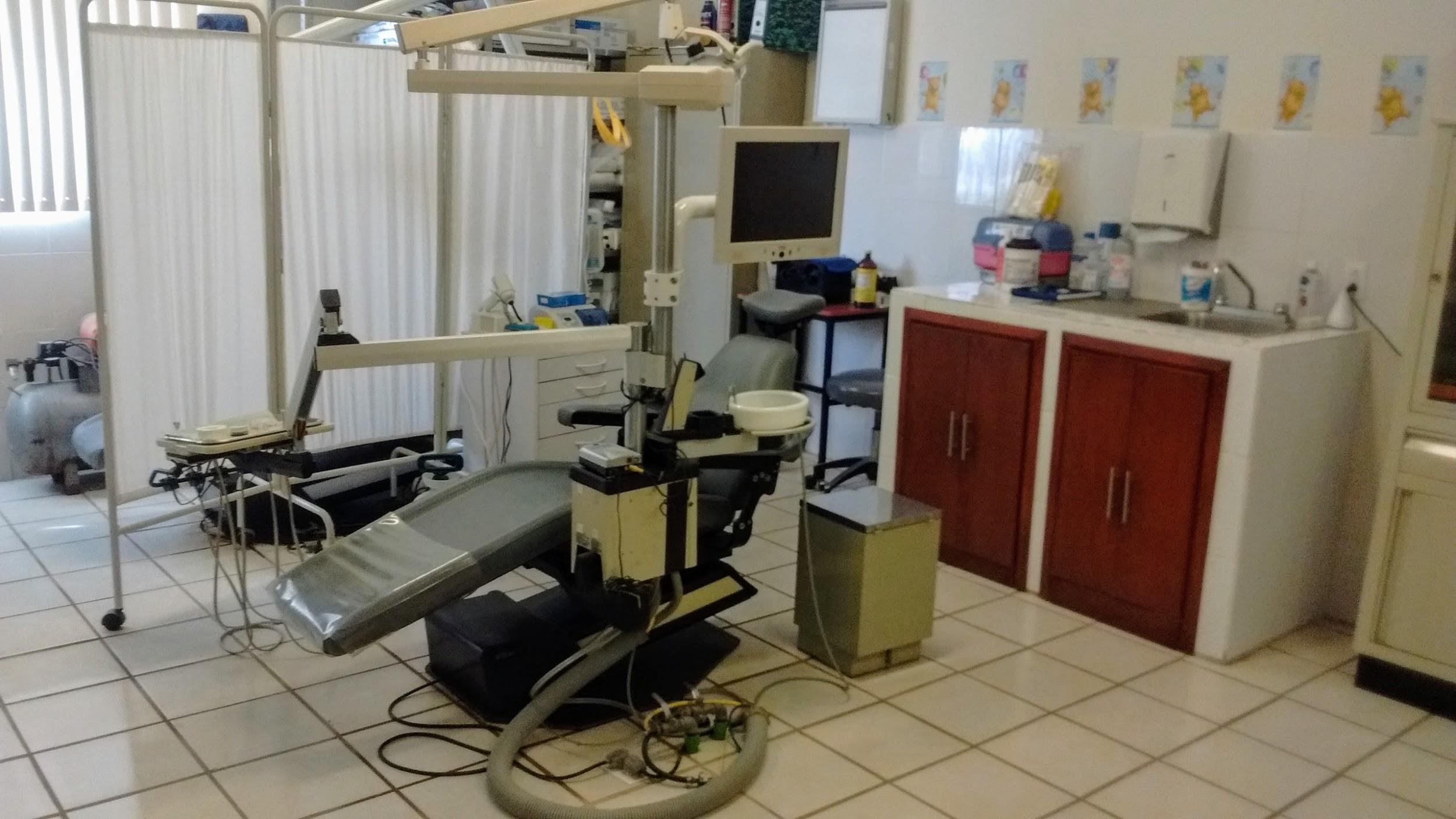
The computer class is open throughout the day for children of all ages. The christmas trees decorating the class were made from recycled products by the children as part of a recent project.
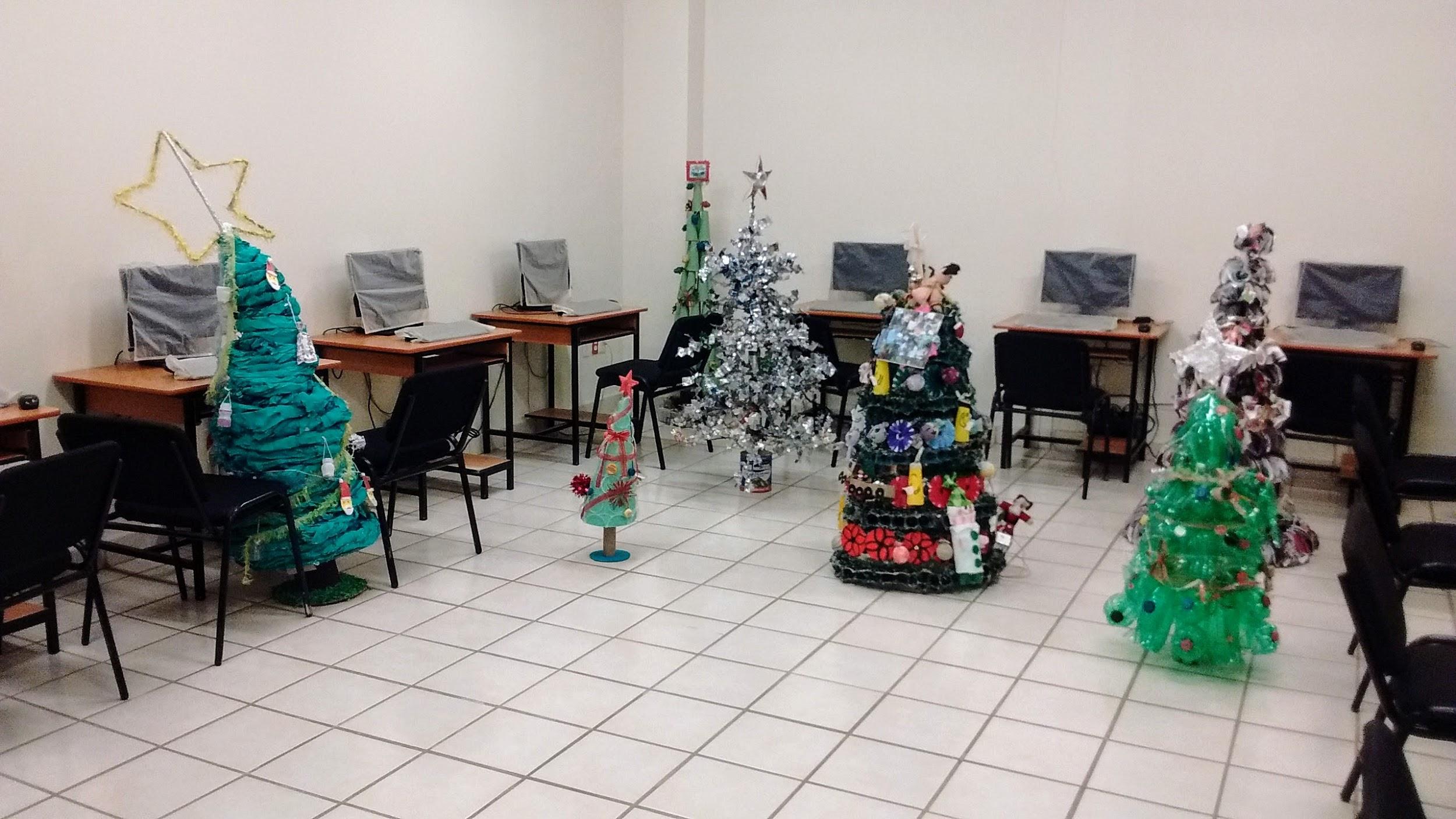
The library is stacked with colouring and children’s books, encyclopedias and materials for crafts projects.
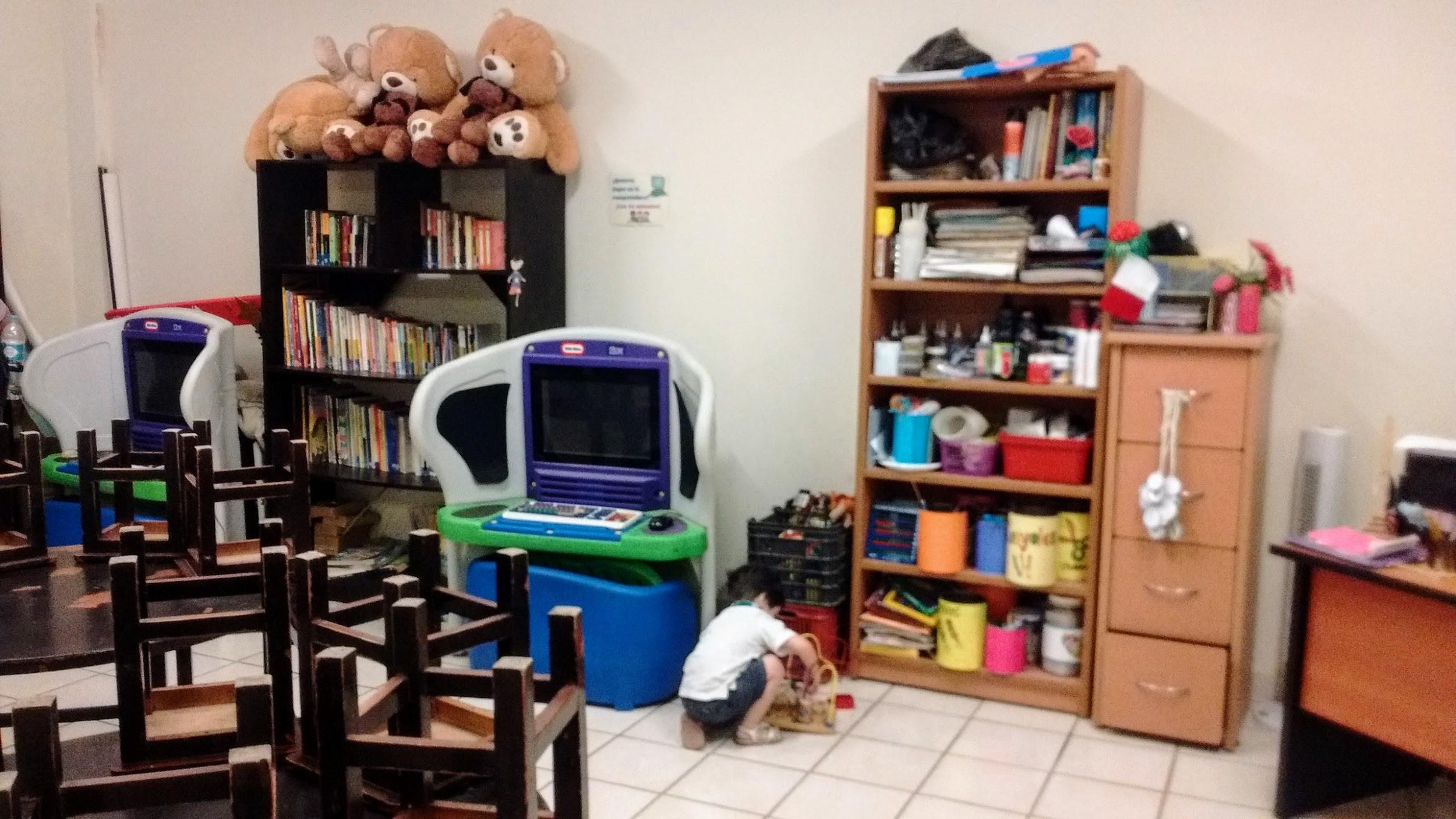
While our 3-year-old was exploring the library’s toys, a local kid entered the room and started browsing some books. Soon he couldn’t hide his curiosity, so he came up to me and asked where we are from. When I told him we are from Israel, he quickly brought an encyclopedia and asked me to show him where it’s on the map. “So it’s close to Egypt, where the pyramids are?”. Turns out Sergio loves reading about Egypt. He asked me to show him my hometown of Haifa on Israel’s map. Then he brought an empty page and asked me to write the alphabet of my language.
Sergio lives with his mother, grandmother and a little brother. It takes him 2 hours by foot to get to the community center. And yet, he is often here, either in the library or the computer class. I wish there was something I could leave him as a present, beyond a page of scribbled Hebrew letters.
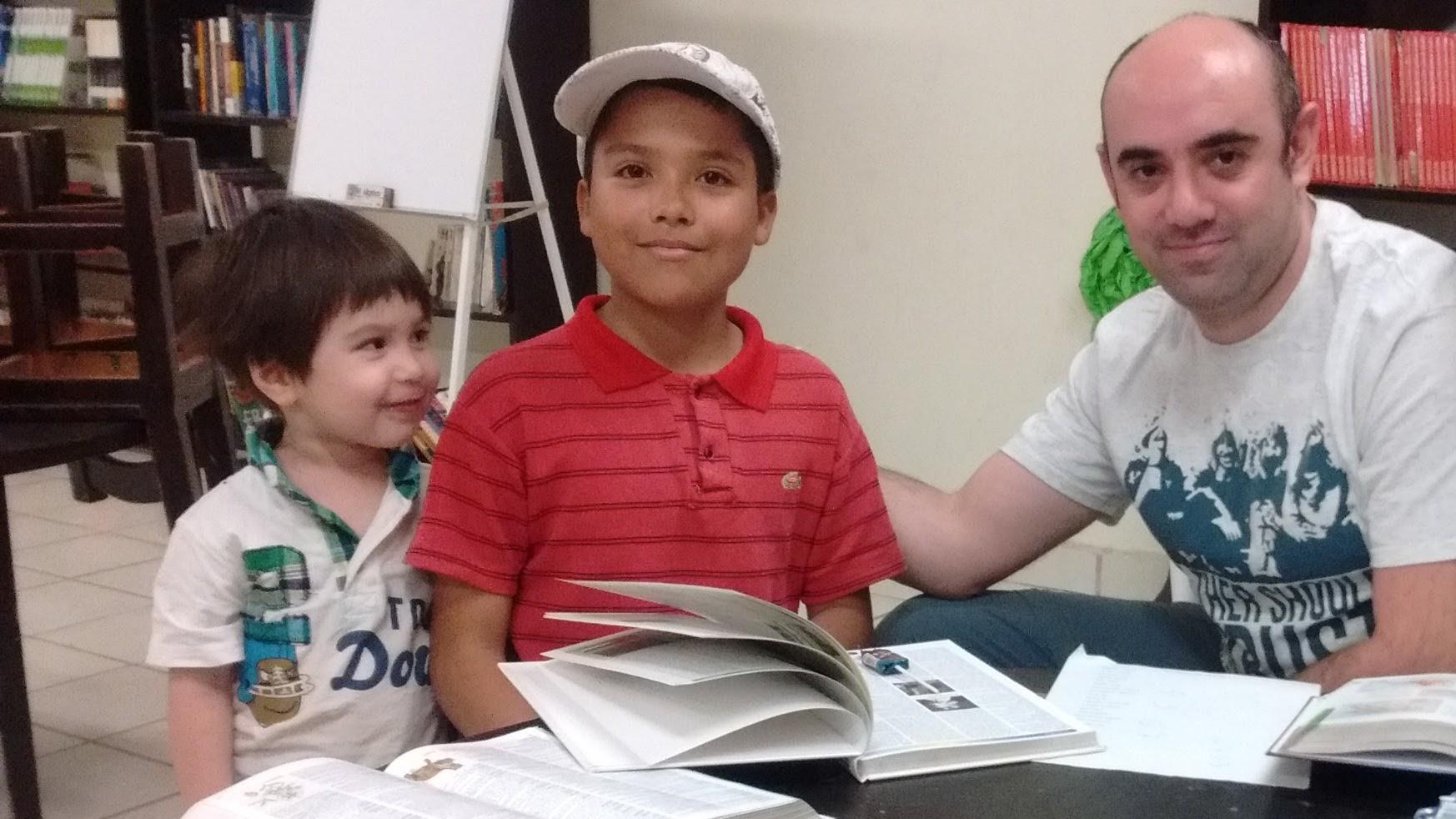
I was impressed by the vision behind how the community centers are organized. The goal of the community center isn’t only to provide a safe and engaging environment for the local children, but eventually to help them break the poverty cycle. There are English lessons, sports practices, leadership workshops for older children, help with school homework. Upon graduation from school, youngsters are tutored on how to write a CV, prepare for job interviews and given tools that would help them land a decent-paying job. But even for children who wouldn’t be able to move higher on the social ladder than their parents, happier and healthier childhood is surely worth something.
Children International depends on donations to be able to continue operating its community centers. It’s a US-recognized charity for tax purposes, and it has high marks for accountability. If you can’t ignore the children in poverty in Mexico and would like to do something about it, please consider sponsoring a child.
